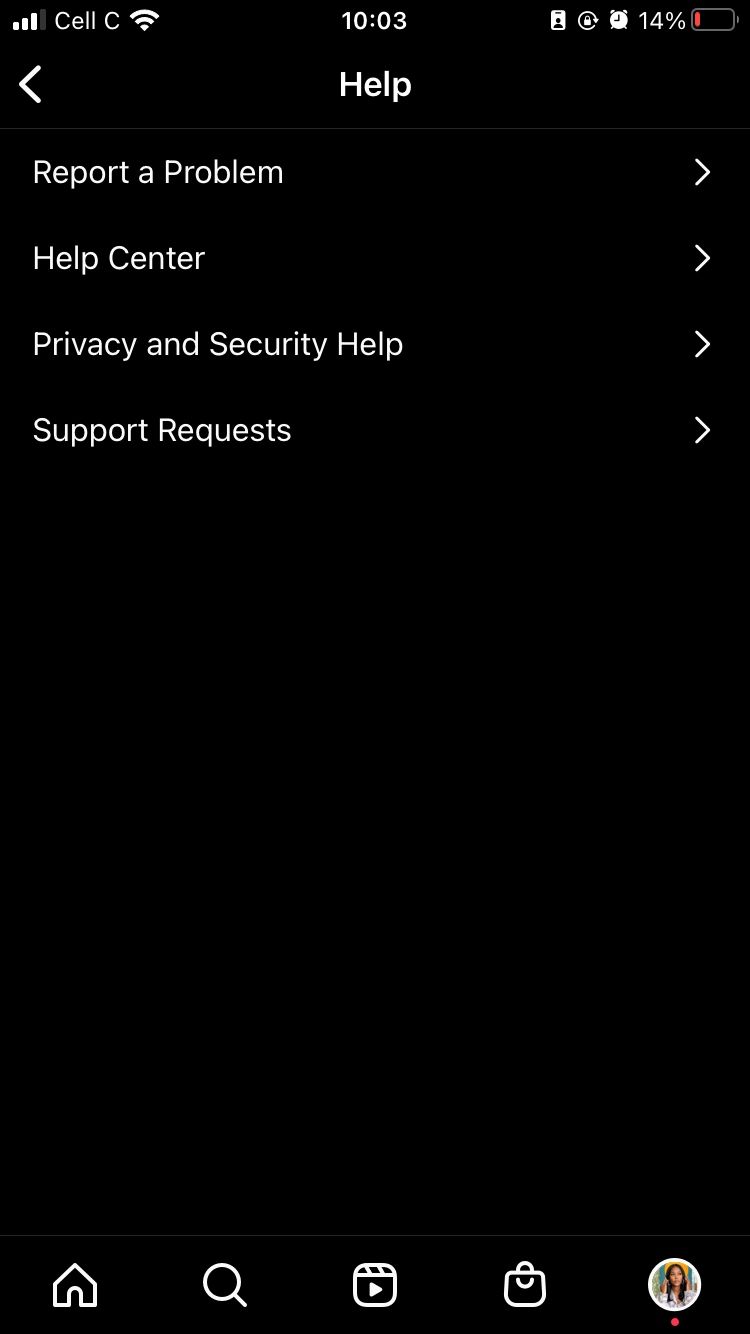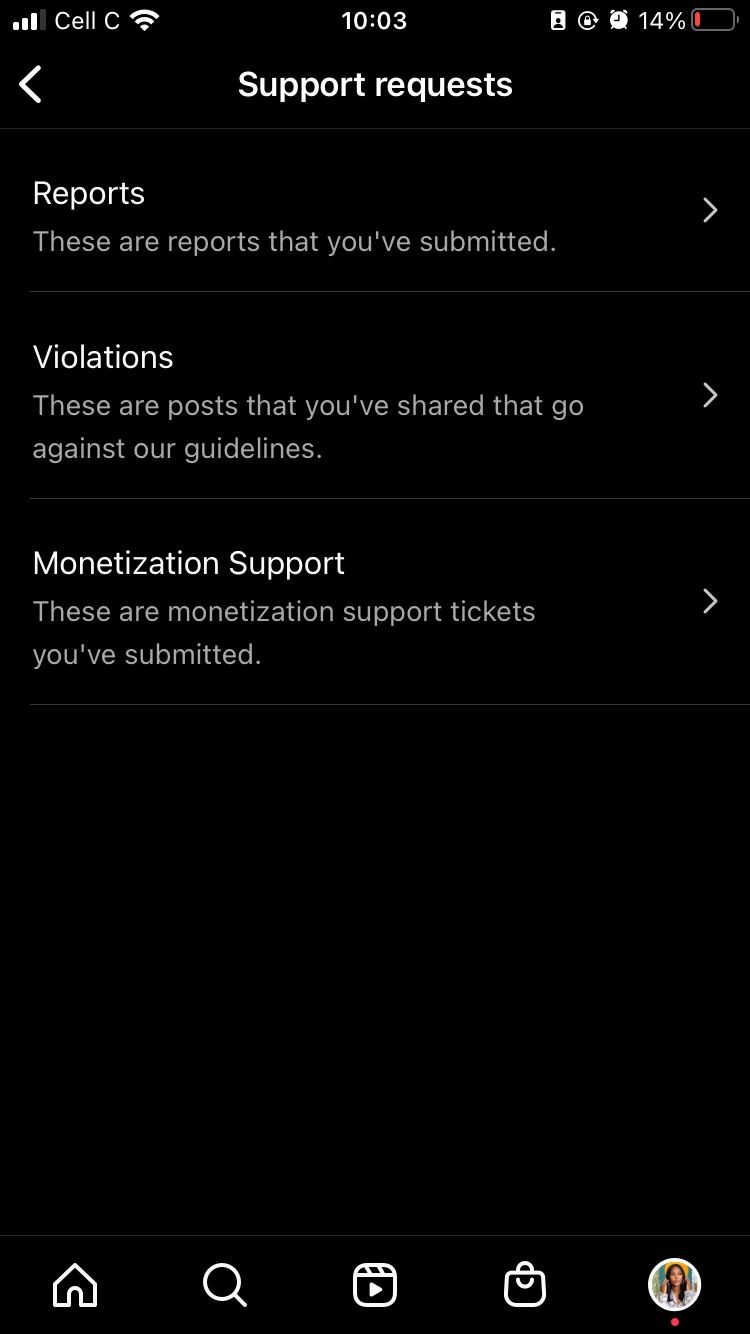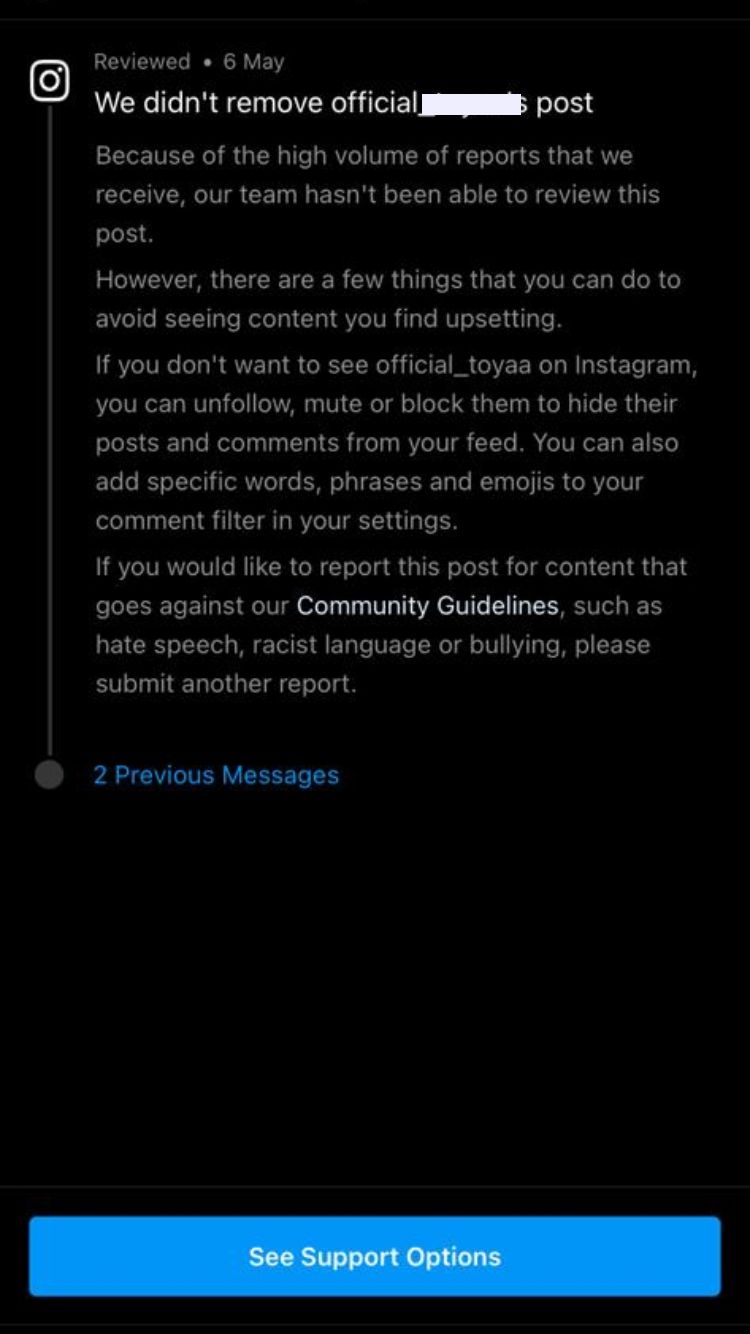Have you ever wondered what happened to the posts and accounts you’ve reported on Instagram? Did Instagram do anything about them, or is the app’s reporting tool just there to make you feel better?
If you’ve been in the dark about whether Instagram does anything about the posts and accounts you report, you can find out by viewing your report history. Keep reading to learn how.
How to View Your Report History on Instagram



Instagram has a feature that shows you a history of all your reports, including their outcomes. It’s hidden away in Instagram’s Help menu, and it helps you trace your reports to see what came of them.
Follow the steps below to find and view your report history on Instagram:
- Open the Instagram app on your phone.
- Tap your Profile icon in the bottom-right corner of the screen.
- In your profile, tap the hamburger Menu in the top-right corner of the screen, followed by Settings.
- Navigate to the bottom of the screen and tap Help, followed by Support Requests on the next page.
- Now tap Reports to view all the reports you’ve filed on the app.
Instagram reviews all reports based on its Community Guidelines. For each report you've filed, you will see the account you reported, when you reported it, and what you reported it for.
Instagram shows you a timeline of the report, from the time you filed it, to the last communication the app sent you about it. This includes the date it was reviewed by Instagram's team and its outcome.
If Instagram agrees that a post violated its guidelines, you might find that it took the post down. Sometimes it shadowbans that Instagram account or suspends it, especially if it received multiple reports.
But you might be surprised to find that, in some cases, Instagram didn't take any actions against an account or post you reported, with reasons.
You might also notice that Instagram admits to not having reviewed some of the reports you filed because of the "high volume of reports" that it receives, even though it provides a date for when those reports were supposedly reviewed.
In such cases, the app advises that you unfollow, mute, or block the account you reported. Alternatively, you're encouraged to file another report if you feel the account violated Instagram's Community Guidelines.
Should You Report Someone on Instagram?
You should report Instagram account or posts that violate the app’s guidelines. But avoid reporting content that Instagram makes exceptions for, like pictures of mothers breastfeeding or nudity in paintings.
Also, don't report accounts just because you don't like the creator or want to limit their reach. Instagram could take action against you if you abuse the report function.
Reporting posts and accounts can be a tedious and sometimes fruitless task, so you can take actions to limit an account's ability to interact with you instead. You can unfollow an account that posts content that makes you feel uncomfortable to protect your mental health on Instagram.
Another option is to make your Instagram account private. However, these measures aren't the most effective, as those accounts can still find your profile and reach out to you in some way.
You could also come across their content on the Explore page or if someone you follow shares it. So try more effective measures, like muting an account to avoid seeing its content on your feed, with the option to visit their profile whenever you want to.
This helps when someone goes through a period of posting potentially offensive or harmful content, which would make you want to take a break from seeing their posts for a while. You can also choose to block or restrict an Instagram account.
Avoid Instagram Accounts That Break the Rules
Reporting accounts and posts that violate Instagram’s Community Guidelines can help prevent the spread of harmful content. However, Instagram won’t always do something about those accounts.
For those reports you do file, your report history can be helpful to you. You can go back to it to make sure you aren’t following any of the accounts you reported and limit their ability to interact with you.
The less troublesome accounts you encounter, the less reporting you may have to do. That can lead to a more pleasant experience on the app.


